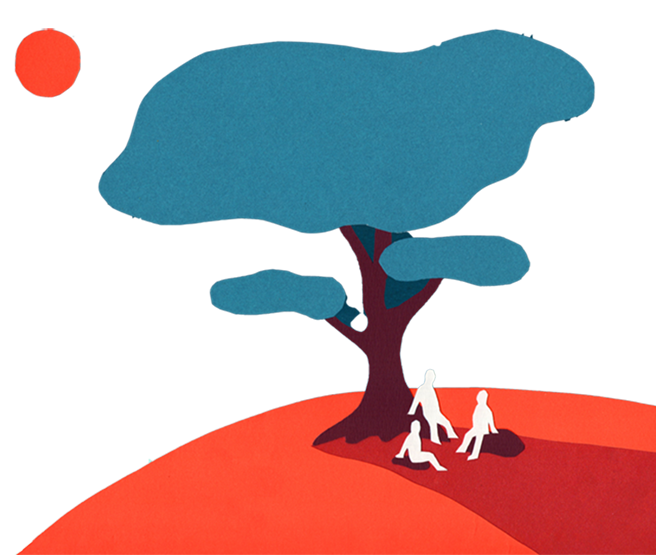An important bit of insight in behavioural expertise is that it really requires a lot of experience. Practical wisdom, or phronesis, as Aristotle called it, is the kind of expertise – if you would call it that – that would contribute to the intellectual improvement of our capacity to live by enlightened normative expectations. There is not much need, nor is there much room for theory in the social and behavioural domain, if you think of theory as basically the development of abstract representational models of a certain region of reality. We do need theorizing, we do need the exploration of abstract analogies, of conceptual relations and implications; we do need thought experiments; we do need a lot of good thinking. But we shouldn’t think of theorizing as a kind of poiesis, a matter of producing something that would survive the activity. Theorizing is a matter of praxis, to use these Aristotelean notions.
Here is an analogy that might explain a lot: you can think of theorizing as similar to painting or similar to dancing. If it is like painting you will need to end the activity when you have your painting completed, when the end-product is realised. This kind of theorizing yields a theory, an abstract product with an existence of its own, most likely, nowadays, a model, perhaps a simulation model that can run on a computer. Theorizing that focusses on causal or mechanical regularities might take this form. Think of Newtonian theory, quantum theory, theories of thermodynamics, theories of micromolecular processes, etc.
But in the domain of social or behavioural phenomena, where obligations and entitlements play a major role, theorizing is a form of praxis. It looks like dancing, not like painting. If you have finished your dance, i.e. the activity of dancing, there is nothing left. There is no end-product. Theorizing in this area is the very activity of systematic thinking, of exploring conceptual relations, of developing arguments, of continuing the conversation, of deepening your understanding, of building experience; in short, of developing your common sense.
Theorizing in the social domain is a specific mode of social interaction. The idea that you can split research and application, that you can separate perception from action, that you can separate diagnosis from intervention, is in the social domain deeply mistaken. Applying a theory in the social domain is not what it is in the natural domain. Applying a theory is adding a move to the practice of theorizing. It is contributing to the further development of one another’s expectations, it is reinforcing specific normative expectations. That is what Ian Hacking is talking about when he talks about the looping effect. There is actually no theory to apply. There are many ways of theorizing, one way of which is a self-deceptive attempt to apply theory. This is self-deceptive because it mistakenly assumes that the social, behavioural domain is a domain that can be approached with merely causal expectations, as if the domain is a field that allows for predictions. That is deeply mistaken.
So bringing more common sense in the academic world will mainly have to focus on the social interactions that are themselves a crucial part of the practice of science, the practice of science communication and the practice of developing informed interfaces between human agents and the objects of their cognitive interests. In the behavioural and social domain, these interfaces are crucially linguistic in nature. So bringing more common sense in the academic world will be a matter of engaging in theorizing, understood along the analogy of dancing, not painting. It will be a matter of supporting the exploration of mutual understanding, between experts with different areas of specilasation, and thus between experts and laypeople.
Key to bringing more common sense in the academic world is acknowledging and appreciating that the majority of people populating Academia is uneducated in most fields. So, key to understanding Academia is to acknowledge that it consists by and large of mere laypeople, well-educated, but no experts, laypeople who cannot but build on trust.

I am working my way through your book on common sense, and will be writing a review for “metapsychology” when I am finished. My common sense tells me that I should ask you for a comment on critical thinking (informal logic) as taught in most philosophy departments today. I particularly like your comment, “No, common sense is not reactionary. I argue in the book that the basic slogan “Automatic pilot if possible and investigative attitude if necessary” shows that the capacity for critical thinking is a crucial part of common sense.” Are critical thinking courses valuable?
Thanks, Bob, for your interest in the book and my thinking about common sense. And thanks for the question. Yes, critical thinking courses are valuable. But I am not in favour of a ‘skills only’ view of critical thinking. I should like to argue that the critical spirit part, as Harvey Siegel calls it, is the crucial bit of critical thinking. It should be a kind of self-examination, in the Socratic sense. Critical thinking is not merely a skill that needs to find a place in a scrutinised methodology. Critical thinking implies one’s own engagement, one’s being moved by appropriate reasons.